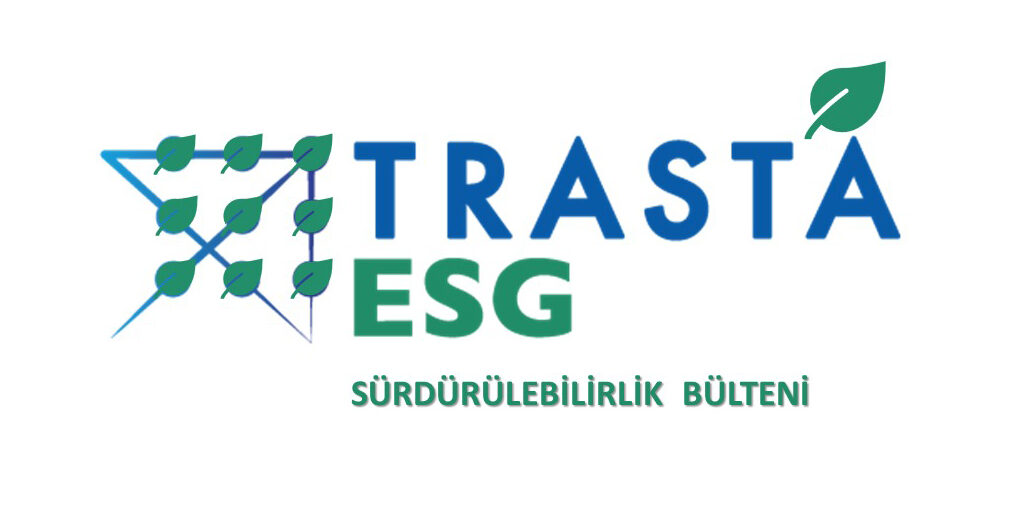MESSAGES FROM US
Dear Readers,
In this issue, we delve into two pivotal reports: the 2025 Global Tipping Points Report and the 2025 C-Suite Sustainability Report. While the former warns that irreversible risks are now at our doorstep, the latter sheds light on the tremendous efforts the business world is making to reverse this trajectory.
We believe both reports will capture your interest and offer you an insightful reading experience.
Stay sustainable,
ÖZGÜN ÇINAR, CEO

ESG NEWS
- Clear Message from the EU to the US: Environmental Laws Are Not Up for Negotiation: The European Commission responded firmly to the US’s view that environmental regulations are “too restrictive for companies.” Spokesperson Olof Gill emphasized, “European laws are not open to negotiation,” reaffirming the EU’s regulatory strength. DETAILS
- Wildfires Are Becoming Deadlier and Unstoppable: Half of the 200 major wildfires recorded over the past 44 years occurred in the last decade. Scientists have clearly demonstrated that climate change is making wildfires more lethal, more costly, and more frequent. The 2024 Valparaíso and 2025 Los Angeles fires stand out as stark examples of this trend. DETAILS

- Carbon Sink Ecosystems Are Sounding the Alarm: Forests and grasslands have long absorbed one-third of carbon emissions, helping stabilize the climate. However, during 2023–2024, this system nearly collapsed. Scientists attribute this breakdown to climate-induced ecological shocks. DETAILS
- Over 100 Countries Have Reduced Fossil Fuel Dependency: According to the International Energy Agency, countries like the UK, Germany, and Chile have reduced their reliance on imported coal and gas by one-third since 2010. Investments in renewable energy have yielded savings worth hundreds of billions of dollars. DETAILS
- TotalEnergies and Siemens Urge the EU to Withdraw Climate Law: In a letter signed by 46 European companies, the CEOs of TotalEnergies and Siemens argued that the EU’s corporate sustainability legislation undermines competitiveness and called for its repeal. DETAILS
- 86% of the Global Population Is Concerned About Climate Change: A global survey involving 280,000 participants from 142 countries and regions revealed widespread concern about climate change. This perception serves as a strong signal to policymakers. DETAILS
🍃 GREEN CORNER 🍃
2025 C-SUITE SUSTAINABILITY REPORT
The 2025 C-Suite Sustainability Report, published by Deloitte Global, covers insights from over 2,100 senior executives across 27 countries. The findings reveal how corporate sustainability strategies are evolving and highlight key priorities. Sustainability remains one of the most critical business imperatives.
Key findings include:
- Sustainability investments are rising: 83% of executives reported increased sustainability investments over the past year.
- Climate change ranks among top three challenges: 45% of respondents identified climate and sustainability, alongside AI and tech adaptation, as their biggest strategic hurdles.
- Business model transformation and holistic integration: Most companies are addressing sustainability by either transforming their business models or integrating it across the organization.
- Resilience despite macroeconomic uncertainty: Competitive pressures such as economic fluctuations and tech investments are not deterring sustainability actions.
Executives also responded to a key question: What value does sustainability create for business?
- Revenue generation leads: The most frequently cited benefit of sustainability actions is increased revenue, followed by regulatory compliance, brand reputation, and risk/cost reduction.
- Technology and AI play a critical role: 81% of participants reported using AI to achieve sustainability goals. Tech solutions are among the top strategic actions.
- Minimal negative impact: Over 90% of implemented sustainability initiatives did not result in adverse outcomes across revenue, cost, reputation, compliance, or resilience.
However, the report does not paint an entirely rosy picture. Challenges remain, and some indicators have worsened year over year. For instance, more executives now view measuring environmental impact as a major barrier, and fewer see climate change as a short-term strategic threat. The proportion of executives feeling pressure from stakeholders on sustainability has also declined.
Recent data has helped shape a roadmap for integrating sustainability into strategy, operations, and innovation. The most commonly implemented actions include:
- Deploying technology solutions
- Using more sustainable materials
- Developing sustainable products and services
- Enhancing operational efficiency
- Monitoring and disclosing sustainability metrics



 Türkçe
Türkçe